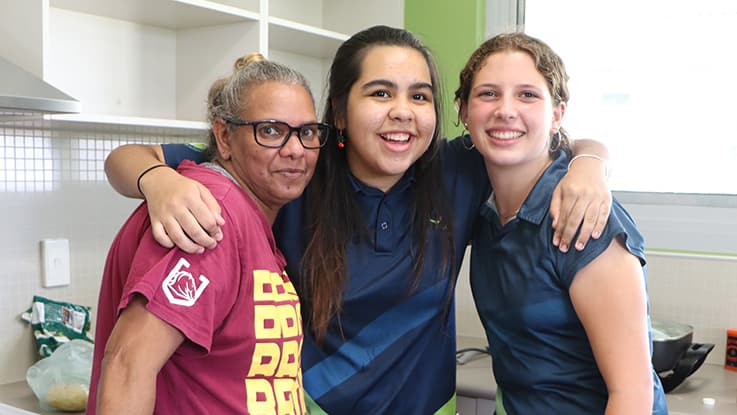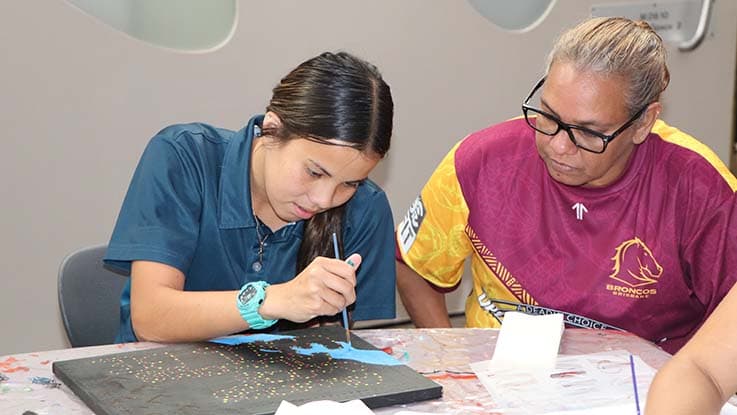
Elders keep students engaged through culture

Good things often happen when learning environments include diverse perspectives and value Aboriginal and Torres Strait Islander culture. Barriers break down as children learn more about themselves and each other. Students become more engaged, not just with culture, but also with their peers and schoolwork.
One of our partner schools in the Northern Territory is experiencing those benefits since implementing The Smith Family’s Elders in School program. It was a concept raised by a local parent on the Learning for Life program. Elders visit the school to connect with students who might not otherwise have access to those role models or support systems.
Elders join classrooms to share knowledge, history, stories and skills, contributing to the curriculum with their unique perspective. Elders also collaborate with schools on important cultural events, like NAIDOC Week.
Part of the approach is to invite Years 7 to 9 students into cultural mentoring groups. The activity happens once a week for 8 weeks over a school term. The program runs throughout the school year, providing opportunities for a new group of students each term.
Tanya is one of the lead Elders for the program. As well as planning and supporting teachers, she teaches culture to a group of girls (respecting cultural protocols, boys learn from male Elders). She says activities are thought up and led by Elders, who get the girls involved through meaningful conversations and projects.

“I go in and I sit with the girls and teach about culture and pass on that knowledge to whoever wants to join in on the sessions,” says Tanya.
“We introduce ourselves and show where we're from and have a basic profile of ourselves that we want to give. Then we get the girls to go around and do the same.
“One term, we taught them about the Aboriginal x-ray art. They made stencils and did stencilling onto bags and t-shirts, or tried to paint it on a canvas. They really enjoyed it.
“Another term we tried something similar and doing some designs on mugs. That way they can take it home for themselves or give it as a present to a parent or a carer or guardian.”
Although learning from Elders strengthens identity for Aboriginal and Torres Strait Islander students, all students are welcomed to attend. “Aboriginal culture is a sharing culture,” says Tanya.
“It's always good to find out about other cultures and learn about them as well. That's what we try and promote. If we teach all kids, it might stem racism and give them a bit more understanding.”
The mentoring groups are an enriching experience for all attendees. Students usually ask to attend through an expression of interest. For some, it’s what keeps them at school.
Now in its seventh year, the program has produced benefits in promoting culture as well as educational outcomes. The Smith Family’s Program Coordinator Clare says they’re hoping to expand the ‘homegrown program’ to support events across the senior campus as well.
“The program is about cultural learning and awareness, leadership skills, identifying values, team-building, respect and engagement, and the importance of school. And learning this within a cultural space,” Clare says.
